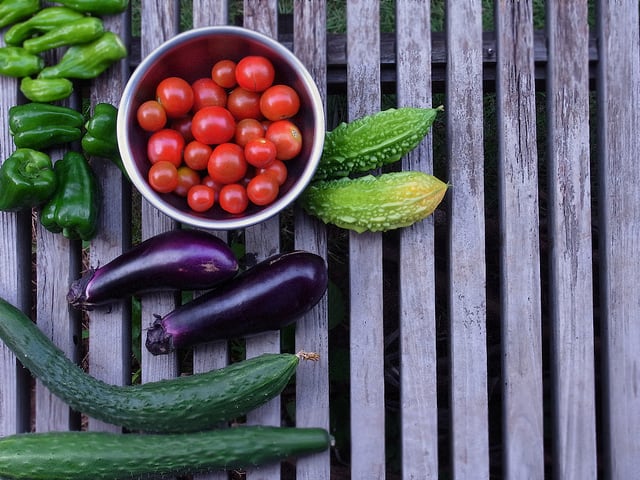When money is tight, your top priority may not be to buy organic food. As long as you’re eating your vegetables and avoiding processed foods, that’s all that matters right?
For some time now the debate has been raging as to the nutritional value of organic foods as opposed to traditionally grown fruit and vegetables. But when you get right to the root of how organic food is produced, it goes so much deeper than just the vitamin and mineral content. Here’s why you really should buy organic food; When you get to grips with the facts, it really is a no-brainer.
Why you should buy organic food
When you’re watching your wallet, it pays to know that the food you’re purchasing is good value for money. Any product carrying an organic label must be certified by the USDA. However, their definition of organic may come as somewhat of a surprise.
Did you know:
1. It’s not treated with sludge
“Organic farmers may not use sewage sludge to fertilise their crops.” Many people are unaware that human, household, and industrial waste is often treated at plants and then spread onto non-organic farmland to fertilize crops.
2. It’s not exposed to radiation
The FDA (Food and Drug Administration) is responsible for protecting public health and ensuring the safety of the food supply, but few people know that it encourages growers of non-organic food to irradiate fruit and vegetables to help prevent food-borne illnesses.
Research shows that food products treated in this manner have a wide range of associated health risks. Farmers are prohibited from using such methods of production if their product is to be certified organic.
Related: How to Grow an Organic Garden
3. It doesn’t contain growth hormone or antibiotics
When you eat a piece of non-organic meat, you may be consuming extra ingredients you won’t find written on the label. Animals reared by conventional farming methods are routinely administered antibiotics and growth hormones which then filter into the food chain.
Although the FDA routinely carries out checks on the safety of these chemicals, the amounts being consumed, and in what combination, aren’t so easy to monitor. Experts can’t be sure of the long-term damage these may be doing to your health.
USDA rules state that synthetic additives and antibiotics cannot be added to animal feed, and the use of growth hormones and standard antibiotics are prohibited.
Related: 9 Healthy Living Tips
4. It won’t be packed with pesticides
The USDA doesn’t allow the use of synthetic fertilizers and pesticides on organic farms. Although it can be argued that the amount of residue found on non-organically grown fruit and vegetables is negligible, studies show that commonly used pesticides like organophosphates can pose a serious risk to health.
Every year the Environmental Working Group produces a list commonly referred to as the “Dirty Dozen”. It routinely tests non-organic fruit and vegetables and publishes its findings in the public interest. Top of the list of offenders was apples, closely followed by strawberries and grapes.
Related: 7 Healing Foods that Boost Metabolism
5. It won’t be genetically engineered
Organic farming prohibits the use of genetic engineering. You may be shocked to learn that between 60-70% of processed foods on our store shelves contain at least one genetically modified ingredient. But what’s all the fuss?
Think of it like this. GM crops are engineered to be highly toxic to pests and resistant to disease and the effects on human health are still being hotly debated. Buying organic is a solid way of ensuring that future generations have the right to grow up eating food the way nature intended.
The Takeaway
We’re not denying that when you buy organic food you’ll spend more money on your food bill, but making a few small changes to your shopping habits really can mean big changes for your health. Buying organic food means you’ll eat foods that haven’t been sprayed with sludge, aren’t exposed to radiation, don’t contain growth hormones or antibiotics, aren’t packed with pesticides, and won’t be genetically modified.
******************
 Sarah Murphy trained at the College of Naturopathic Medicine in London, England, where she specialized in Western Herbal Medicine and Ayurveda. She writes widely about natural health, and is passionate about empowering people to take better care of their own well-being.
Sarah Murphy trained at the College of Naturopathic Medicine in London, England, where she specialized in Western Herbal Medicine and Ayurveda. She writes widely about natural health, and is passionate about empowering people to take better care of their own well-being.
Featured image by spinster cardigan


Comments are closed.